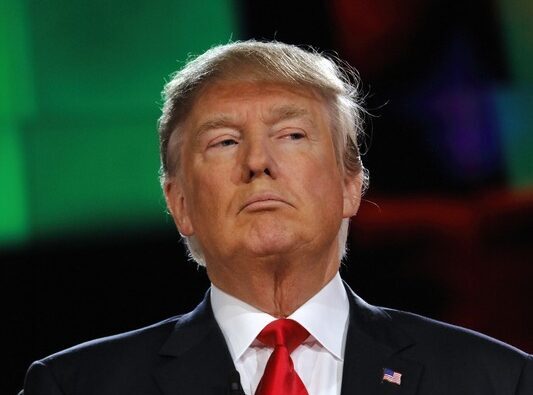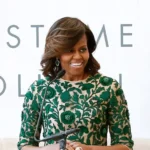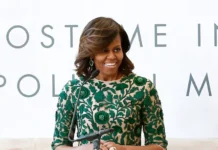On January 27, 2025, President Donald Trump ordered a brief halt to all federal loans and grants via the Office of Management and Budget (OMB), effective January 28.
This initiative by the White House, intended for a thorough review of federal spending to align with the administration’s policy priorities, met with legal opposition. Critics claimed it overstepped the Impoundment Control Act of 1974, which restricts a president’s power to withhold approved funds by Congress.
On January 29, 2025, the Trump administration promptly withdrew the controversial directive that caused a 48-hour federal funding freeze, threatening to disrupt billions in government aid.
Acting OMB Director Matthew J. Vaeth, who issued the directive via a memo, ordered federal agencies to cease financial assistance programs. The memo specifically targeted initiatives concerning diversity, equity, and inclusion (DEI), gender identity, and environmental policies.
“The American people elected Donald J. Trump to be President of the United States and gave him a mandate to increase the impact of every federal tax dollar,” Vaeth stated in the memo. “The use of Federal resources to advance Marxist equity, transgenderism, and green new deal social engineering policies is a waste of taxpayer dollars that does not improve the day-to-day lives of those we serve.”
While the freeze did not affect direct payments to individuals like Social Security, Medicare, Medicaid, and Supplemental Nutrition Assistance Program (SNAP) benefits, it could have influenced around 20% of all federal expenditures, potentially impacting billions of dollars in aid to universities, small businesses, and state and local governments.
Legal Challenges and Immediate Injunction
The directive faced immediate legal resistance, with 22 states and the District of Columbia lodging lawsuits, alleging that the administration’s action was unconstitutional. A federal judge provisionally blocked the directive’s enforcement, averting any immediate funding interruption while legal proceedings were set to continue.
Senate Minority Leader Chuck Schumer (D-N.Y.) criticized the freeze, warning it could have had extensive consequences. “They say this is only temporary, but no one should believe that,” Schumer said. “These grants help people in red states and blue states, support families, help parents raise kids, and lead to stronger communities.”
Some experts speculate that the administration seeks a Supreme Court review of the Impoundment Control Act. Samuel Bagenstos, former general counsel at OMB, suggested the administration is intentionally provoking legal challenges.
Potential Impact on Federal Programs
Organizations and agencies reliant on federal grants have expressed concern over the directive. A funding freeze could affect programs such as Head Start early childhood education, Meals on Wheels for seniors, and various public infrastructure grants administered by states.
The memo required agencies to complete a comprehensive review by February 10, 2025, to verify their programs’ compliance with Trump’s executive orders on immigration, foreign aid, environmental agreements, energy policy, and diversity initiatives. However, federal agencies remained unsure about which programs could ultimately be cut or reinstated.
Bobby Kogan, senior director of federal budget policy at the Center for American Progress, described the directive’s scope as unprecedented. “This is what we were worried about—some enormous, broad thing that would stop funding for huge swaths of the government that he simply doesn’t like and doesn’t agree with.”
While the White House insisted the pause was temporary, agencies and recipients remained unsure about when or if their funding would be reinstated. The legal battle over Trump’s authority to halt congressionally approved spending is expected to continue in the coming months, potentially setting the stage for a Supreme Court showdown.
Despite the memo’s withdrawal, the administration emphasized that its underlying executive orders targeting specific areas of federal spending remain in effect. These include continued pauses on foreign aid disbursement and specific clean energy initiatives approved by the Biden administration.
The administration’s decision to rescind the directive arrived as a federal judge in Rhode Island prepared to consider a temporary restraining order request from 22 states and the District of Columbia. This could have imposed more extensive restrictions than the D.C. judge’s ruling.
On Friday, January 31, Rhode Island Judge John J. McConnell, Jr., issued a temporary restraining order in favor of 22 states and Washington, D.C., halting Trump’s proposed freeze on federal spending. This decision followed a similar ruling by a federal judge in Washington, who had previously blocked the freeze from taking effect on existing grants. On the evening of Monday, February 3, the Washington judge extended her ruling, maintaining the hold on the freeze.
New York Attorney General Letitia James, one of the plaintiffs in the case, commended the court’s decision and emphasized that the president does not have the unilateral authority to disrupt congressionally authorized spending.
Trump’s attempt to temporarily halt federal grants and loans likely violates the Constitution’s separation of powers and the Impoundment Control Act of 1974. Under this law, the president can only delay congressional spending under specific conditions and with Congress’s consent. The law permits the president to propose delays in the use of certain funds, but Congress has 45 days to reject these proposals.
There is compelling evidence that Trump’s funding freeze is unlawful. He failed to adhere to the requirements set forth in the statute and appears to be exceeding the limits of presidential authority in his attempt to withhold funds.
In a nation often divided on issues, one point should be clear: Trump is pushing to expand presidential power in unprecedented ways. For now, however, two federal judges are resisting this effort. In Rhode Island, one judge concluded that “there is no evidence the Executive has complied with the [Impoundment Control Act of 1974] by notifying Congress and thus enabling a potentially lawful so-called ‘pause.’” The judge also remarked, “[t]he Court finds that the current record supports the likelihood of a successful claim that the Executive’s actions violate the Constitution and U.S. statutes.”
Whether this ruling will hold as the case continues remains uncertain.











